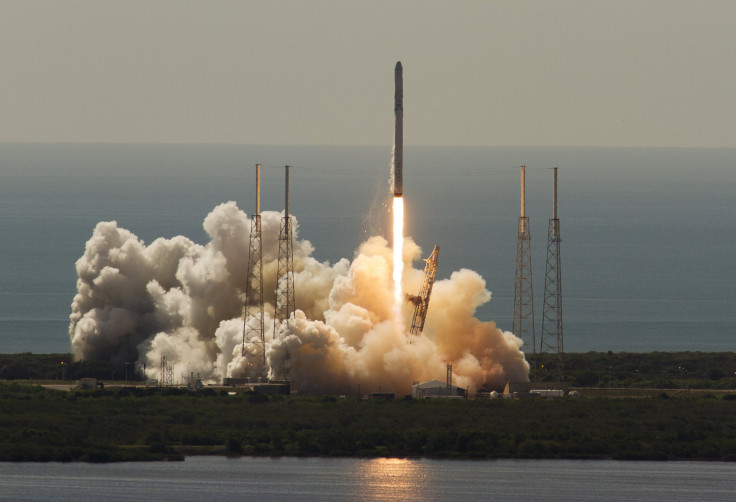SpaceX Falcon 9 Launch Update: Bad Weather Forces Company To Postpone Comeback Launch To Jan. 14

SpaceX’s upcoming Falcon 9 launch has been postponed, again. The launch, originally scheduled to take place on Jan. 8, had been pushed back to Jan. 9, and on Sunday, it was rescheduled to Jan. 14 due to a forecast of heavy winds and rains at the Vandenberg Air Force Base in California.
Launch moving due to high winds and rains at Vandenberg. Other range conflicts this week results in next available launch date being Jan 14.
— SpaceX (@SpaceX) January 8, 2017
The rocket will carry 10 satellites to low-Earth orbit for the communications company Iridium.
High winds and rain in forecast at VAFB. First launch of #IridiumNEXT now planned for January 14th at 9:54:34 am PST. #NEXTevolution.
— Iridium (@IridiumComm) January 8, 2017
The launch will end a four-and-a-half month gap in SpaceX’s satellite launch operations. The company had put its launches on hold on Sept. 1, when an explosion destroyed one of its Falcon 9 rockets and a $200 million AMOS-6 communications satellite it was carrying.
Last week, after an in-depth Federal Aviation Administration (FAA)-monitored investigation, SpaceX announced it had pinpointed the cause of the mishap. Its investigation revealed “buckles” in the inner liner of one of the composite overwrapped pressure vessels (COPVs), which are used to store liquid helium.
“Although buckles were not shown to burst a COPV on their own, investigators concluded that super chilled liquid oxygen can pool in these buckles under the overwrap. When pressurized, oxygen pooled in this buckle can become trapped; in turn, breaking fibers or friction can ignite the oxygen in the overwrap, causing the COPV to fail,” SpaceX explained in an anomaly update. “In addition, investigators determined that the loading temperature of the helium was cold enough to create solid oxygen, which exacerbates the possibility of oxygen becoming trapped as well as the likelihood of friction ignition.”
In order to prevent such catastrophic COPV failure, the company plans to — in the short-term — change the way it loads helium, and, in the long term, implement design changes to the COPV to stop it from buckling.
“The corrective actions address all credible causes and focus on changes which avoid the conditions that led to these credible causes,” SpaceX said.
The conclusions of the investigation were approved by the FAA on Friday, which authorized SpaceX to carry out seven launches of its Falcon 9 version 1.2 rockets.
© Copyright IBTimes 2025. All rights reserved.





















